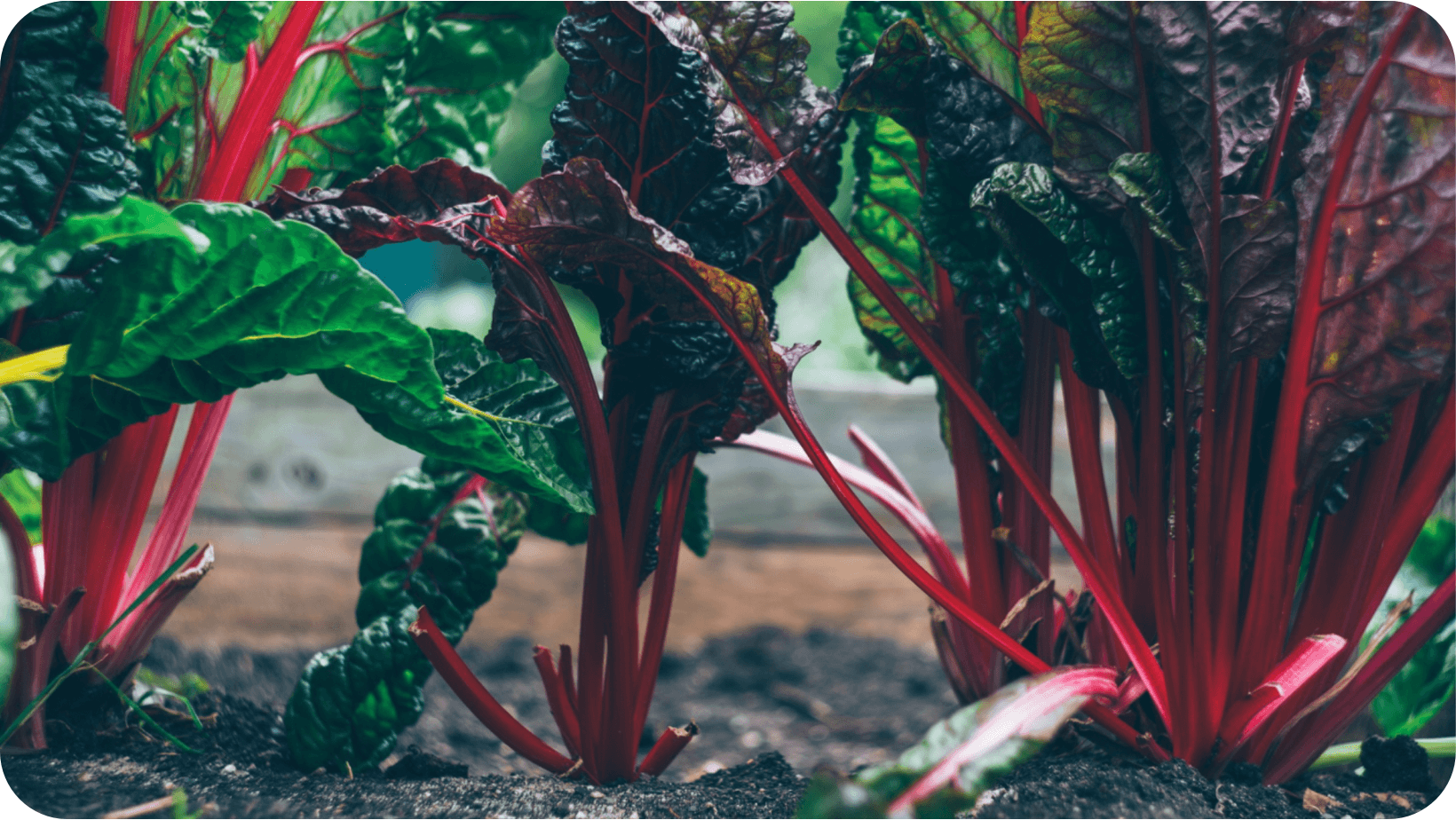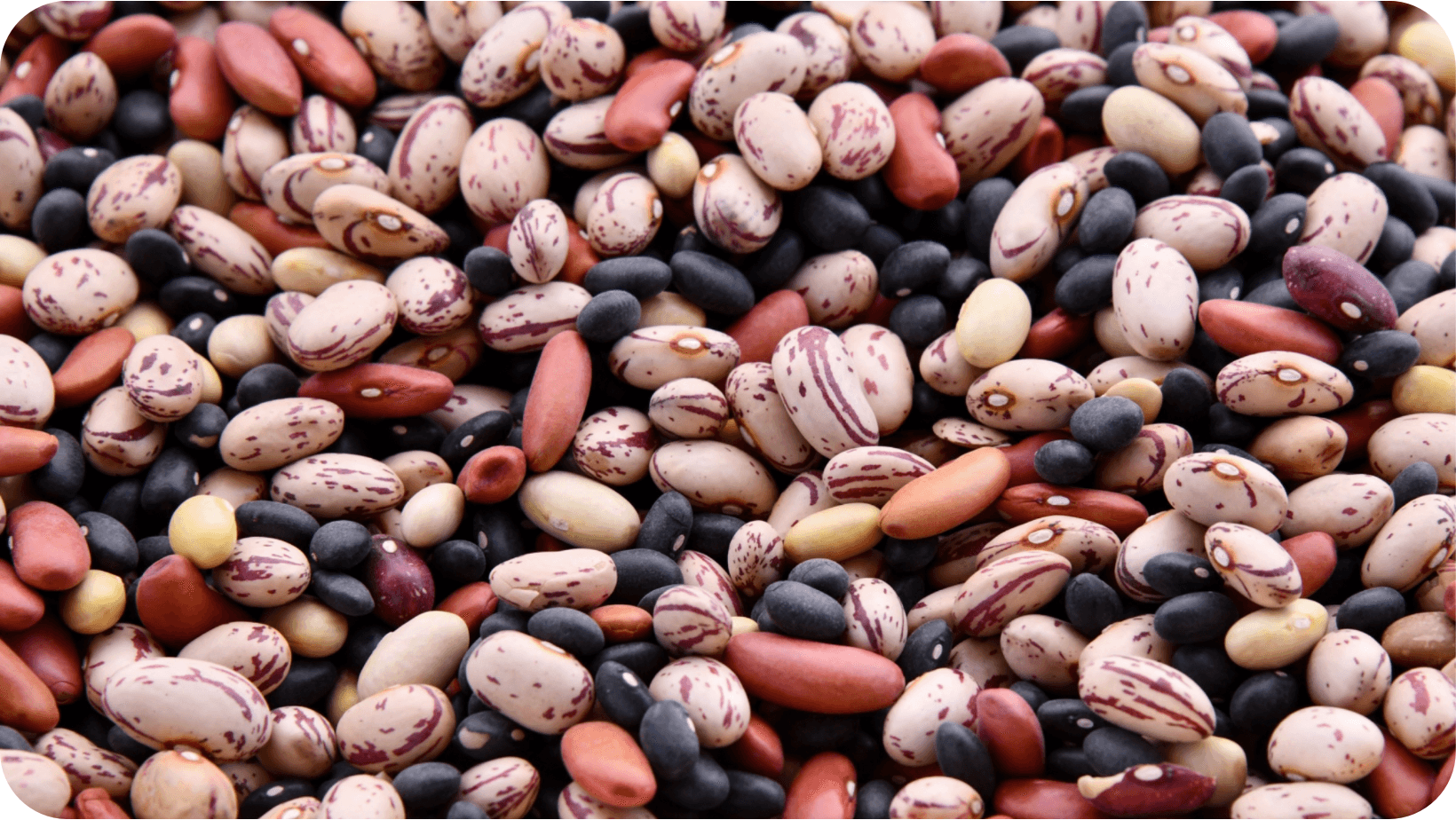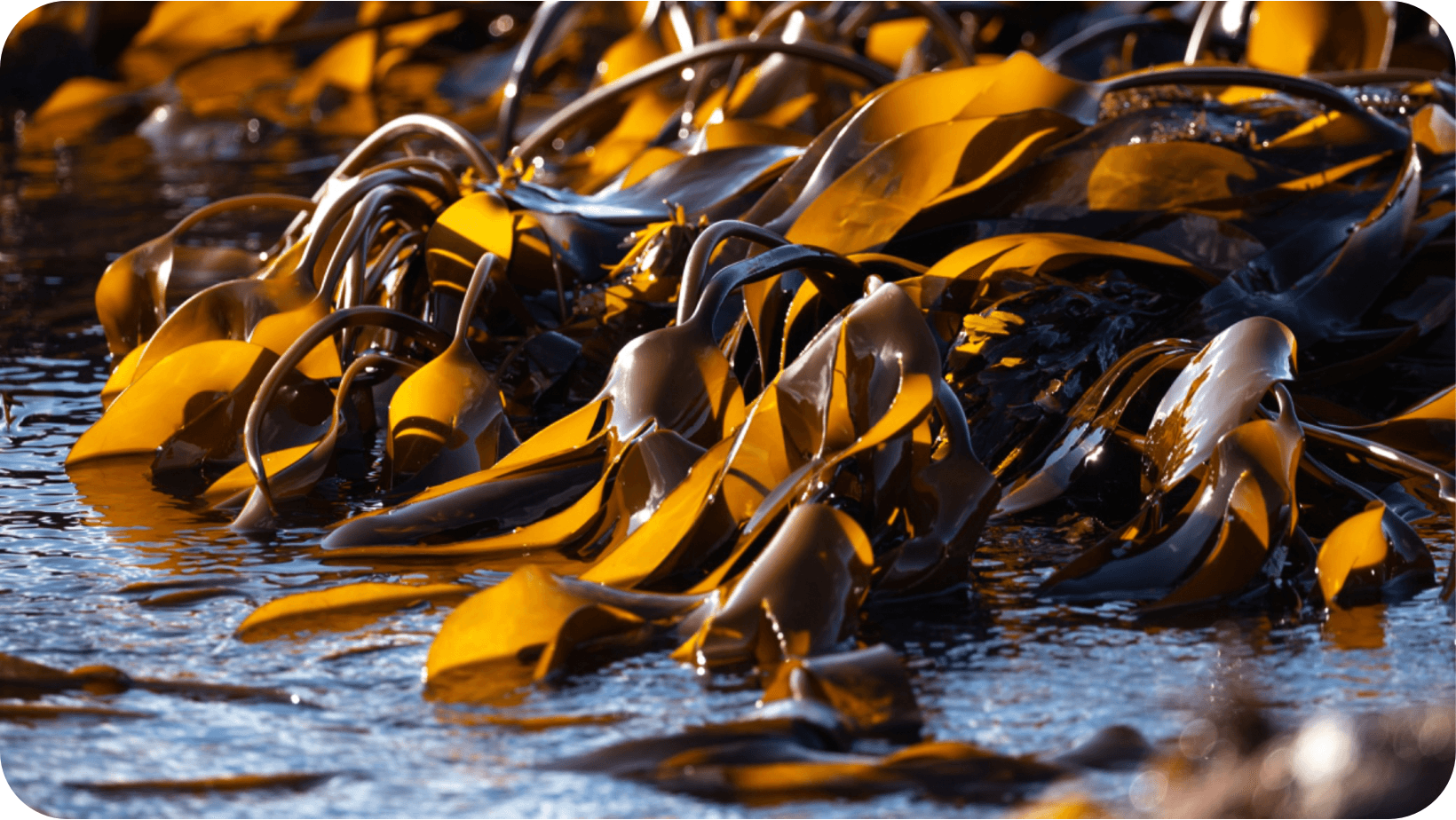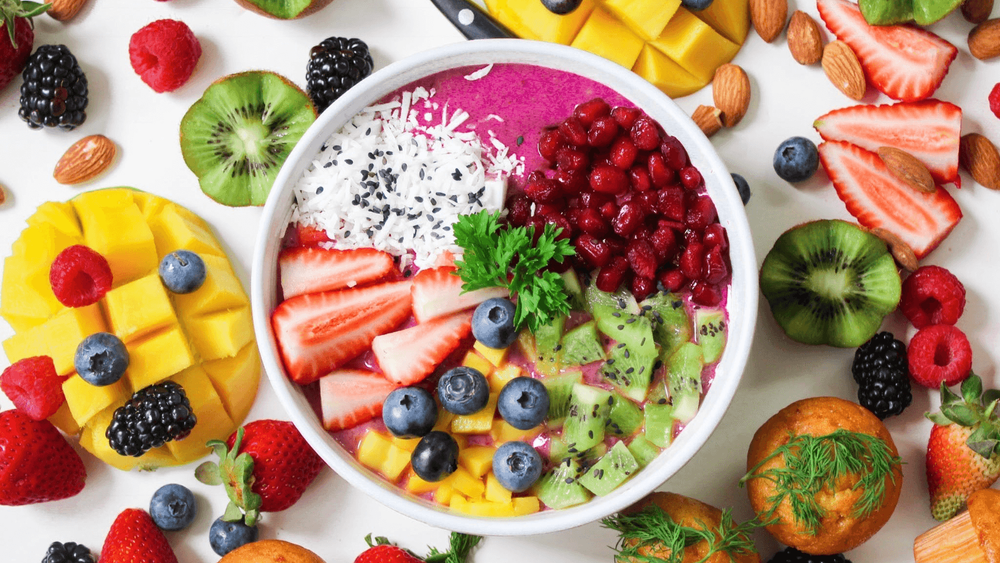Essential nutrient guide: How to thrive in Veganuary and beyond
The past year has simply flown by. As we approach this new year, many of us embrace the opportunity to dive headfirst into Veganuary 2024. This lifestyle choice sparks countless discussions and enquiries from various communities - some driven by curiosity, and others not so much.
The central theme of these conversations revolves around essential nutrients, the building blocks our bodies require to function optimally. Questions like, "Where do you get your protein?" or "Can you obtain B12 from plants?" and the classic "Without calcium, will our bones crumble to dust?".
The good news is that these concerns are largely based on myths. In fact, not only can we survive on a completely plant-based diet, but we can thrive.
There are a few key macro and micronutrients that we may need to be more mindful of to ensure our bodies are well-nourished, such as protein, omega-3 fatty acids, iron, calcium, B12, and iodine. However, they are readily available from plant sources, making it simple to meet our dietary requirements.
We’ll explore these nutrients, demystifying common misconceptions and providing you with the knowledge you need to succeed in your plant-based journey.
“Where do you get your protein?”
While concerns about protein intake have significantly diminished in recent years, it's always worth revisiting this essential nutrient. Proteins are composed of 20 amino acids. We need to obtain nine from our diets - these nine are called essential amino acids.
Protein is fundamental to our overall well-being. It plays a crucial role in maintaining the health of our skin, bones, hair, muscles, organs, tissue repair, and a myriad of other bodily functions.
You might have come across the terms ‘complete protein’ and ‘incomplete protein’. A complete protein contains adequate amounts of all nine essential amino acids, while an incomplete protein is lower in one or more of these amino acids.
It's important to note that when we say ‘incomplete protein’, we don't mean that something is entirely missing. Rather, the term signifies that a certain food contains varying quantities of amino acids and has a unique nutrient profile.
So, while some plant-based foods may be lower in certain amino acids than others - beans tend to be lower in methionine and whole grains and nuts lower in lysine - they can compensate with larger mineral profiles.
The beauty of a plant-based diet is that you can easily mix and match foods, just as you do in your everyday meals. This practice unknowingly helps you create complete proteins.
Importantly, your body doesn't differentiate between amino acids sourced from plants or animals; it simply requires them. If one meal is lower in protein than the previous one, your body can combine proteins to minimise waste and ensure you receive the amino acids you need for optimal health. However, it may be prudent for vegans to have slightly more than non-vegans partly due to amino acid profiles and reduced digestibility.

Nigel Msipa/Unsplash
The true source of omega-3
Omega-3 is associated with fish; however, this is not its true origin. Fish aren't the creators of omega-3. Fish acquire their omega-3 by feasting on algae.
There are a few different types:
• DHA (docosahexaenoic acid): This omega-3 is primarily found in ocean-based foods like seaweed and algae.
• EPA (eicosapentaenoic acid): Another form of omega-3, EPA, can be found in various seafood sources, including marine life.
• ALA (alpha-linolenic acid): This omega-3 is in foods like chia seeds, flax seeds, and walnuts. ALA can convert to EPA and DHA within your body (although converts inefficiently to DHA, especially in men).
Plant-based sources of omega-3 provide a safe and abundant alternative to the potential hazards associated with fish consumption. You can reap the benefits of omega-3 without worrying about toxins or mercury; as Dr. Greger says: “Cut out the middle fish!”
Omega-3 fatty acids are crucial in maintaining healthy eyes and supporting vision. These nutrients are known to boost brain function, aiding memory and cognitive abilities, and contribute to heart health by reducing the risk of cardiovascular issues.
Pregnant women can benefit from omega-3 for fetal brain and eye development while regulating metabolism. These fatty acids may provide relief from menstrual discomfort and pain.
Calcium: “Got Milk?”
When it comes to calcium, people immediately think of cow’s milk. Calcium is abundant in a wide variety of plant-based foods that give milk a run for its money. The bioavailability of dairy products is around 30%, whereas dark leafy greens and others have around 50%, allowing more calcium per gram we consume.
Calcium is a mineral that's crucial for all living beings, it's abundant in our bodies, particularly in our bones and muscles - helping them grow strong in your youth and stay sturdy as you age. It also plays other various roles in our body functions. If you don't have enough, you could get muscle cramps, spasms, brittle nails and have trouble swallowing.

Markus Spiske/Unsplash
Iron: To heme, or not to heme, that is the question
Iron is a cornerstone of optimal health, but, you don't need to rely on meat for your iron intake. Iron comes in two main forms: heme iron, found in animal products, and non-heme iron, prevalent in plant-based sources.
Heme iron is more readily absorbed by the body than non-heme iron, and vegans may have lower iron stores. However, this doesn't translate into high rates of anaemia among plant-based eaters.
Studies have revealed that having a "normal or lower" iron level isn’t necessarily suboptimal. Maintaining iron stores within this range could have benefits, and it may contribute to improved insulin function and lower risks of heart disease and cancer.
Iron doesn't have to be a major concern for those following a plant-based diet. By maintaining a varied, well-rounded diet, you can meet your iron needs without supplementation.
To optimise your iron intake, remember to spread out your iron intake and divide it into multiple smaller portions throughout the day. The body absorbs iron more efficiently when it's consumed in smaller doses.
Pair iron-rich foods (such as legumes, beans, nuts and seeds) with vitamin C, as this simple hack can increase iron absorption by as much as five times, and avoid coffee and tea one hour before and after eating iron-rich foods, as these drinks contain tannins which interfere with iron absorption.
But why is iron such a big deal? Iron is behind the creation of red blood cells, crucial for haemoglobin production, the nutrient responsible for transporting oxygen in your bloodstream. Without adequate haemoglobin, you may face anaemia, fatigue, and oxygen deprivation.
The significance of iron extends further. It plays a pivotal role in mitosis, the process that enables your cells to divide and function correctly, which is essential to overall cell health. Additionally, iron supports cognitive function, enhancing mental sharpness, quicker learning, and sustained alertness.

Shelley Pauls/Unsplash
The origins and importance of B12
B12 does not reside in the animal kingdom, yet beneath our feet within the soil, B12 synthesis is undertaken by soil-dwelling bacteria, which rely on mineral-rich soil, specifically cobalt.
Unfortunately, industrialisation, chemical treatments, and fertilisers can strip soils of cobalt, rendering them incapable of naturally producing B12. This has led to the necessity of B12 supplementation for many humans and animals.
When people consume animals, the B12 is essentially recycled from their diet to ours, much like the flow of nutrients within ecosystems.
B12 deficiency is not exclusive to those following meat-free diets; it's a global concern, approximately 40% of the Western population have low or marginal levels of B12. This vital nutrient, called cobalamin, provides a wide range of benefits, including energy conversion, skin and hair care, heart and brain health, digestive support, DNA synthesis, and nourishment of the nervous system.
A deficiency in B12 can lead to symptoms such as headaches, fatigue, irritability, and even cognitive difficulties. The good news is that B12 can be obtained through supplementation and fortified foods like cereals, spreads, and plant-based milk. If your garden soil is mineral-rich, it might harbour some B12-producing bacteria.
Iodine
Iodine, a trace mineral, is of great importance for our overall health. Iodine is crucial in regulating thyroid hormones, impacting temperature, energy levels, and overall well-being. It's especially vital during pregnancy for both maternal and fetal health.
Modern food practices have depleted fruits and vegetables of their iodine content, much like B12, and while in some countries a requirement is to add iodine to bakery goods, the UK doesn’t implement this.
Sea vegetables, particularly seaweed, reign supreme in iodine, offering up to 232 mcg per serving (certain seaweeds may be best avoided or limited due to the very high and varying concentrations, such as kelp).
While seaweed's taste may not appeal to everyone, supplements derived from seaweed and algae are readily available and budget-friendly.

Ben Wicks/Unsplash
Embracing a vegan lifestyle is not only attainable but also immensely rewarding. The key nutrients discussed here - protein, omega-3, iron, calcium, B12, and iodine - are all readily available from plant-based sources, and the latter three can be partially obtained from many fortified plant-based milks.
By understanding and optimising your intake of these essential nutrients, you can thrive on a plant-based diet while enjoying the numerous health benefits it offers.
Whether you're new to plant-based living or a seasoned pro, this knowledge equips you to make informed choices that support your health and well-being.
Remember, with the right nutrition, you can flourish on your plant-based journey and contribute to a more sustainable and compassionate world. Here's to a healthy and vibrant 2024 filled with delicious plant-based goodness!
For a deeper dive into some essential vegan nutrients, check out the 5 best vegan omega 3 sources and how to get B12 as a vegan: why is it essential?
